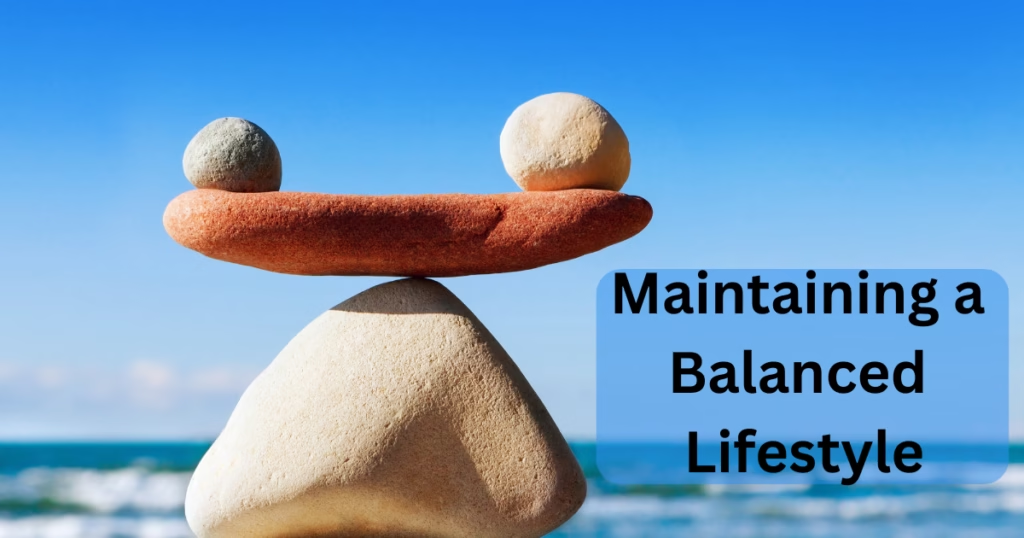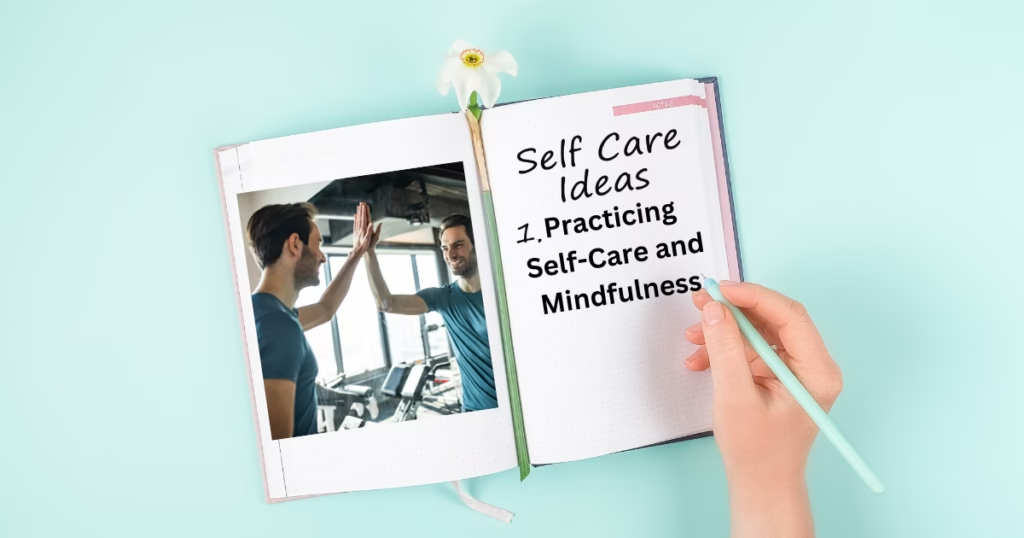Positive Mental health is the foundation of a happy, meaningful life
Mental health is very important for a happy, meaningful life. Only when the mind is healthy can we overcome difficulties, maintain good relationships, and achieve our goals. In Islam, mental health and spiritual well-being are intertwined. There are many guidelines for this in the Quran and the teachings of the Prophet Muhammad (peace be upon him). By following Islamic principles, maintaining our emotional, mental, and physical health is considered a form of worship and gratitude to Allah.
In this blog, we will look at some important things that can improve mental health. We will talk about balancing a lifestyle, creating good relationships, practicing self-care, being mindful, seeking professional help if necessary, and being mentally strong. All of this is not only good for our health, but it is also in line with the Islamic way of life. If we understand these things and apply them in our lives, we can live a healthy life with hope and purpose.
Maintaining a Balanced Lifestyle

A balanced lifestyle is one of the most important things to maintain mental health. In a fast-paced environment like America, it can be challenging to balance work, family, and personal time. But Islam clearly guides us on how to create a balanced lifestyle by emphasizing balance in all aspects of life. “Thus We have made you a balanced community,” says the Quran (2:143). This highlights the importance of a balanced life in everyday life.
To live a balanced life, you must first decide what is important to you. Set aside time for prayer (Salah), work, rest, and entertainment. The daily prayer routine of Muslims naturally divides the time of the day, helps to focus the mind, and helps to live a regular life. For example, setting aside some time for prayer during work or to calm the mind can help you focus more on work and reduce stress.
Similarly, taking care of your physical health is also very important in a balanced life. Eating nutritious foods, drinking enough water, and exercising not only improve physical health, but also have a direct positive impact on mental health. The Prophet Muhammad (peace be upon him) emphasized the importance of physical activity, saying, “Your body is yours.”
In American life, spending time in nature, engaging in favorite hobbies, and spending happy time with loved ones can create a perfect balance. Avoiding overwork and dedicating some time to spiritual contemplation can help maintain this balance.
By living a balanced life according to Islamic teachings, everyone can maintain and protect their mental health and live a life full of peace and purpose.
Building Strong Relationships
Strong relationships are very important for a peaceful mind. In America, where we are always on the move and talking on our cell phones, it is very important to develop face-to-face relationships. It is very good for the mind. In Islam, relationships are given importance, especially family, friends, and our community. The Quran says, “Be kind to parents, relatives, orphans, the poor, neighbors, and those who are far away.” (Quran 4:36) In Islam, relationships should be loving, respectful, and understanding. For example, talking to our family often, eating together, and participating in local events will strengthen our relationships and bring comfort to our minds. The Prophet (peace be upon him) said, “The best of you are those who treat their families well.” This shows how important family relationships are.
In America, many people feel lonely and isolated. If we participate in events held for them at the mosque or in some kind of charity work, we feel that someone is with us. The feeling of loneliness in our hearts will decrease. Helping each other, or talking to friends on the phone are all things that are mentioned in Islam. All of these are very good for the heart.
Islam says that when there is a fight in a relationship, it is important to be patient and forgive. If we give importance to good relationships, understand each other, and have trust, we will get a circle of support. That will help our hearts to be at peace and will also improve our lives. Having strong relationships based on love and trust is very important for our mental happiness.
Practicing Self-Care and Mindfulness

Self-care and mental focus are very important to achieve a peaceful state of mind. Especially in a world like America where we are always running around with work and work, it is very important to take care of our body and mind. In Islam, taking care of ourselves is a duty. It is also a way of thanking Allah for the health that He has given us. The Prophet (peace and blessings of Allah be upon him) said, “Your body has rights over you.” This means taking care of your body, mind, and soul. Self-care is small things like eating healthy foods, exercising daily, and getting enough sleep. All of these things can help keep our bodies and minds healthy. Taking care of ourselves does not mean neglecting others. It is about regaining the energy needed to fulfill our responsibilities well. For many Muslims in the United States, self-care means focusing on spiritual matters. For example, daily prayer (salat), remembering Allah, and reciting the Quran can all help reduce stress and bring peace of mind. This is what they call ‘mindfulness.’ It means being fully present in the present moment.
“Mindfulness” means taking time away from technology and enjoying nature or doing things that you enjoy. For those of us who live a fast-paced life, sitting quietly for a while can help us focus and clear our minds.
Making self-care and mindfulness a part of our lives can help us feel more confident and less stressed. By changing these two things, along with our beliefs and habits, we can improve our mental health. Not only that, life will be very happy and balanced.
Seeking Professional Support When Needed
Topic: Seeking Help for Mental Health: Islam and Mental Health
Dear friends,
Mental health is a very important issue in today’s era. In America, many people are suffering from mental stress. When this happens, reaching out to a mental health counselor or therapist and getting help can bring a big change in our lives.
Our Islamic religion has said that there is a solution for all kinds of diseases and mental illness. The Prophet (peace be upon him) has said, “There is a cure for every disease.” Therefore, if the mind is not right, we should not leave it alone, we should look for a solution for it.
Our Muslim brothers and sisters in America, do not think that seeing a therapist or counselor is against our religion. It is a responsible decision that we make for our mental health. There are now many faith-based counseling centers, where they provide counseling in accordance with our Islamic principles. Whether you have depression, anxiety, or any other mental health problem, getting treatment is the first step to healing yourself. It is an important part of protecting your life and mental health.
Mental health care is not just about going to a therapist. It includes attending support groups and seeing a religious leader who has been trained in mental health. Medical care and spiritual help can help you heal faster. For example, along with therapy, prayer (Salah) and remembrance of Allah (Dhikr) can help you feel more at ease.
In some communities in the United States, there is still a reluctance to seek mental health care. However, we all need to understand that seeking mental health care is normal. We need to educate others about the benefits of doing so. If mental health care is also provided in accordance with Islamic teachings, it can be a great way to achieve peace of mind.
Ultimately, mental health is very important. If you need help, don’t hesitate to ask.
Developing Resilience and Coping Skills

Maintaining a healthy mental state is very important. In America, we have to face many kinds of stress, such as work, financial problems, and social problems. Resilience is very important to recover from this. We need certain skills to cope with difficult times. In Islam, there are many ways to do this. Patience (sabr), trusting in Allah (tawakkul) are all very important. “After hardship, there will be ease” (Quran 94:6) is what the Quran says. This helps us to be confident in difficulties.
The basis of mental strength starts with our faith. Praying daily (salat), remembering Allah, and reciting the Quran, all of these give peace and courage to the mind. This helps us to keep our mind centered and clear when difficulties come.
In America, they say that ‘self-reliance’ is very important. But we must also trust in Allah and our own efforts. We can do some things to calm our minds, such as breathing deeply, keeping a diary, or exercising. In addition, doing spiritual things can be very healthy for our minds. Going to a local mosque or joining a support group can help reduce feelings of loneliness. Islam teaches us that hardships are like tests for us, and we can learn a lot from them. If we learn to deal with hardships with patience, faith in Allah, and determination, we can improve our mental health. These methods, combining our faith with practical things, help Muslims in America to be courageous in a fast-paced lifestyle.
Conclusion
Mental Health: The Way Islam Shows
Mental health is very important for a fulfilling life. Islam clearly teaches us how to achieve it. The most important things are to balance our lives, maintain good relationships, take care of ourselves, keep our mind in a balanced state, go to the doctor if necessary, and face any problem bravely. All these are very important for mental health.
In a fast-paced world like America, there is a lot of stress. In times like these, it is very good to follow the ways shown by Islam. Islam tells us to treat everything equally. It tells us to love others. It tells us the necessary ways to live our lives well. Performing Salah (Salah) daily, having good relations with family, and putting trust in Allah (Tawakkul) all these give us peace of mind. Not only that, but they also give us the strength to face any difficulty bravely.
If you have any mental problems, it is very important to go to the doctor. Islam also says that you should take medicine for all diseases. Therefore, if you combine our religious beliefs with modern treatments, you will be mentally healthy.
In fact, mental health is not just about overcoming difficulties. It is about balancing our faith and life. By following these steps, Muslims in America can live a happy and healthy life while respecting their religion and culture.
Frequently Asks Question
How does Islam view mental health?
Islam considers mental health to be as important as physical health. The Quran and Hadith emphasize the need for balance, self-care, and patience in difficult times. Islam encourages seeking support when needed, whether through family or professional help, with the belief that complete well-being is assured. Mental challenges are seen as tests from Allah, with guidance on how to manage them with patience and faith.
Is it okay to seek professional mental health support in Islam?
Yes, Islam encourages seeking help when needed. The Prophet Muhammad (peace be upon him) said, “For every disease, there is a cure,” and this includes mental health issues. Seeking treatment or counseling is not against Islamic principles, but is considered a proactive step towards maintaining well-being. Mental health professionals can provide the tools needed to overcome struggles while integrating faith-based practices.
What are some practical ways to build resilience according to Islam?
In Islam, resilience is built through patience (sabr), trust in Allah (tawakkul), and gratitude. The Quran reminds us that hardships come easily, which encourages individuals to maintain hope during difficult times. Engaging in daily prayer, dhikr (remembrance of Allah), and reflecting on the blessings in life help strengthen resilience. Support from community and family also plays an important role in building emotional strength.
How can self-care contribute to positive mental health in Islam?
In Islam, self-care is seen as a responsibility to oneself and to Allah. The Prophet Muhammad (peace be upon him) emphasized the importance of taking care of both the body and the mind. Practices such as regular prayer (salat), eating healthily, exercising, and maintaining spiritual practices such as dhikr all contribute to positive mental health. Taking time for rest and reflection is equally important, allowing individuals to refresh and stay connected to their faith.




